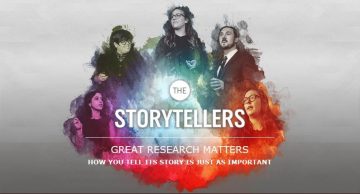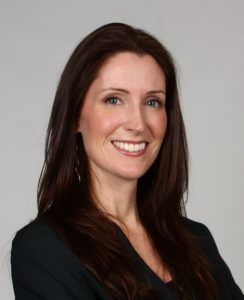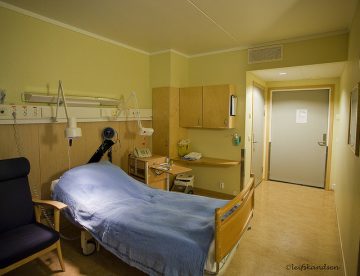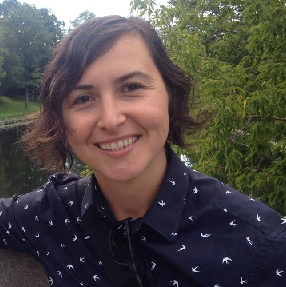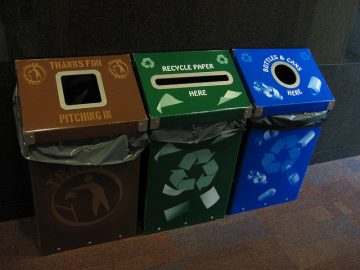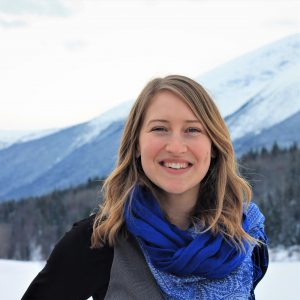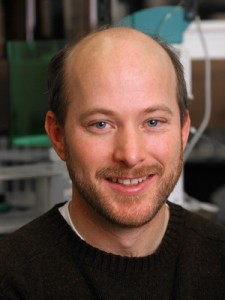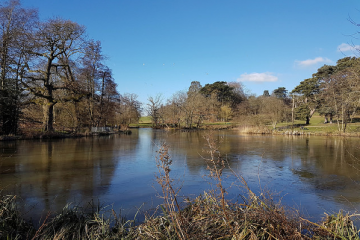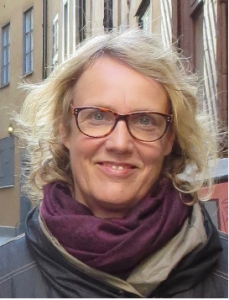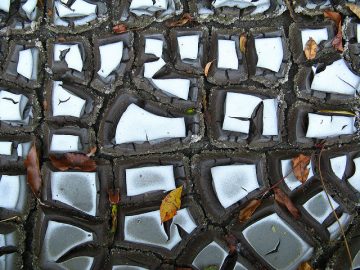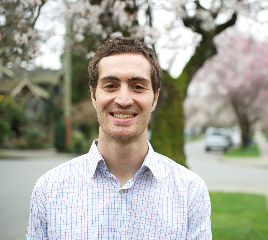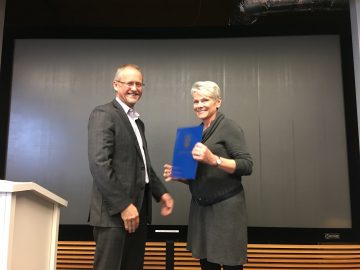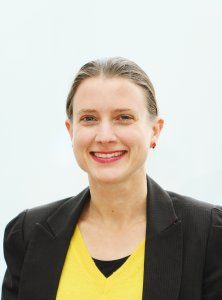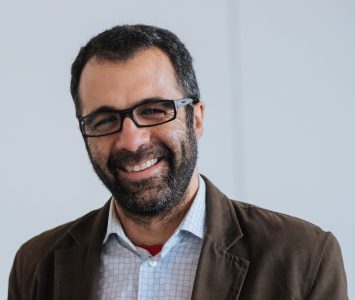This interview features Maery Kaplan-Hallam, a 2017 RES MA graduate and current Senior Specialist, Climate Change and Health at First Nations Health Authority! At the time of this interview (pre-2020), Maery was working as an Engagement Coordinator with the Government of Alberta’s Land Use Secretariat (LUS).
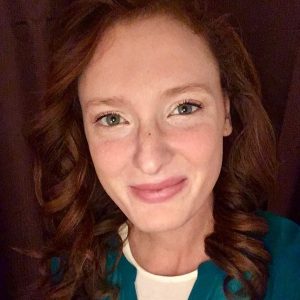
What is your current position?
I am part of the consultation arm of the Government of Alberta’s Land-Use Secretariat (LUS), which is responsible for developing all of Alberta’s regional plans as part of an integrated resource management system. Specifically, I work in a small team to support LUS engagement and consultation activities with First Nations and Métis communities across the province. We have the lead role in coordinating meetings on the extensive range of information, ideas, and issues connected to land-use, regional planning, and environmental management in Alberta. The meeting formats range from region-wide Indigenous working groups involving dozens of community representatives to one-on-one policy consultations with individual communities.
What kinds of responsibilities do you have in your current position, and what kinds of challenges do you face?
Part of my responsibilities involve supporting my team in the planning, coordination, and hosting of the engagement and consultation sessions referenced above. This includes back-end office work such as facilitation planning and coordinating various government departments, as well as attending and supporting the sessions themselves.
The other part of my responsibilities ends up taking me outside of the LUS consultation realm altogether. I actually spend most of my time working on a mix of ‘pan-Canadian’ and Alberta-specific files related to Canada’s Pathway to Target 1, an initiative focused on achieving particular conservation targets by 2020 (See here). My work in this realm is predominantly focused on Indigenous Protected and Conserved Areas (IPCAs). On the pan-Canadian side of things I am fortunate to support the work of Indigenous leaders and federal/provincial/territorial representatives prompting conversation on IPCAs in Canada. I am also part of a small group of folks trying to do the same within the Alberta Government.
Challenges… Coming into a new political, cultural, and socio-economic context has been too stimulating and enriching to label a challenge per se, but it is a steep learning curve. As is the shift from academic and ENGO worlds to government, since the latter involves such specific (and at times somewhat baffling) language, hierarchy, norms, and process.
What do you like most about your current job?
The first thing is that I have the opportunity to sit at working group tables with technical consultants, political leadership, and elders from First Nations, Métis Settlements, and the Métis Nation of Alberta, listening to them directly about land-use and environmental management in the province. It’s difficult for me to articulate succinctly how immense a learning experience this has been.
It has also been fascinating to get exposure to the inner workings of a government bureaucracy. Having previously worked in the academic, ENGO, and private sectors, coming into government has been an incredible opportunity to see the processes behind certain decisions and actions -or inaction- that often leave onlookers puzzled or exasperated. Now at least I feel slightly less puzzled…
In what ways did your experience in IRES help prepare you for what you do now?
It set the stage for a quite a bit of the work I do now. For one, my field research involved spending a lot of time talking with local community members about the impacts of environmental management on different dimensions of their lives and livelihoods. There is strong overlap between those conversations and the ones I am a part of in Alberta through Indigenous engagement and consultation sessions.
The process of writing a thesis and subsequent journal articles certainly improved my written communication. The ability to present concise and coherent messages about an issue is beneficial across all sectors.
As well, though my work always focused on the human dimensions of environmental issues, the interdisciplinary nature of IRES meant that I was often exposed to the biophysical side of the conversation. I continue to build on that exposure today as I work in spaces where different sectors, such as forestry, agriculture, energy, tourism, and parks, need to communicate with each other.
Why did you choose the RES program (and UBC)? What was your previous educational background, and how did this influence your choice?
My academic background includes a BA in geography from the University of Victoria, which had a heavy focus on human geography and the socio-cultural dimensions of natural resources management. That degree prompted an interest in qualitative research on linked human-environmental issues, and I thought IRES would be one of the best places to build on those interests within a well-respected, research-focused, interdisciplinary program with some heavy-hitting social-scientists on its faculty.
What was the most enjoyable and/or impactful part of your experience in IRES?
Perhaps unsurprisingly, the most impactful parts of my IRES experience were not the most enjoyable at the time. In particular, I’m thinking about the painstakingly iterative process of refining and re-refining research ideas, plans, and products in the face of time and resource constraints. Struggling through that cycle of guidance- attempt- feedback- refine has had a hugely positive impact on my skill set as a researcher and strengthened my overall capacity as a thinker.
Do you have any advice for current RES students?
The relationship with your supervisor will impact your experience more than you realize now. All of the faculty at IRES offer incredible intellect, curiosity, and research capacity, but they are not all a good match for you. Through a combination of luck (on my part) and thoughtfulness (on their part) I was exceedingly fortunate to work with two supervisors that I could communicate with in terms of logistics, timelines, and funding as well as the heady mess of early-stage social science research. Significantly, I could count on them for what I needed, and as far as I’m aware they felt the same about me.
So, just a few pieces of advice:
- Pick your supervisor carefully and start communicating about the important things from step one. Don’t wait too long for them to initiate any key conversation; they are busy and also human. You both hold responsibility for your success.
- Be more organized than you would otherwise think is necessary and assume that anything involving revisions and feedback will take a million years.
- Take advantage of the masses of examples that you have access to, for everything from research and funding proposals to conference presentations and thesis structures. You will likely produce a much better product more efficiently than starting from a blank slate.
There are a hundred other ‘lessons learned’ of course, and they will vary depending on who you ask. I certainly recommend reaching out to chat with different folks who have completed or are part way through the program to gather their insights and pointers.
I found my time at IRES immensely stimulating, challenging, enjoyable, and beneficial. I wish you the same.
For more info on Maery’s work and a few publications that are demonstrative of the kind of qualitative social science Maery was involved in over the course of her time at IRES, check out the below links:
Kaplan-Hallam, M., Bennett, N.J., & Satterfield, T. (2017). Catching sea cucumber fever in coastal communities: Conceptualizing the impacts of shocks versus trends on social-ecological systems. Global Environmental Change 45, 89-98. https://www.sciencedirect.com/science/article/pii/S0959378017301036
Kaplan-Hallam, M. and Bennett, N. J. (2017), Adaptive social impact management for conservation and environmental management. Conservation Biology. doi:10.1111/cobi.12985 https://onlinelibrary.wiley.com/doi/abs/10.1111/cobi.12985
Bennett, N.J., M. Kaplan-Hallam, G. Augustine, N. Ban, D. Belhabib, I. Brueckner-Irwing, A. Charles, J. Couture, S. Eger, L. Fanning, P. Foley, A. M. Goodfellow, L. Greba, E. Gregr, D. Hall, S. Harper, B. Maloney, J. McIsaac, & M. Bailey. 2018. Coastal and Indigenous community access to marine resources and the ocean: A policy imperative for Canada. Marine Policy 87:186–193. https://www.sciencedirect.com/science/article/pii/S0308597X17306413
